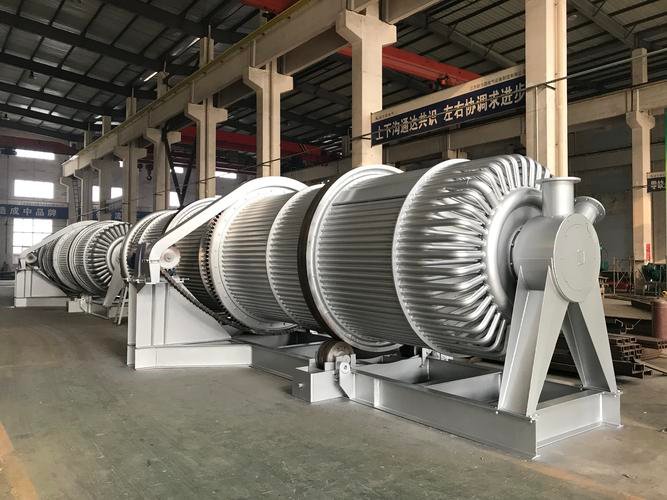Tailored for Precision: The Growing Demand for Custom-Made Industrial Sensors

In the world of industrial manufacturing and automation, the need for precision, efficiency, and adaptability has never been greater. As industries evolve and operations become increasingly complex, businesses must rely on technology to maintain competitive advantages. One of the most crucial pieces of technology in any modern manufacturing or operational system is the custom-made industrial sensor. These sensors are designed to meet specific needs and provide precise, reliable data that supports smoother operations and better decision-making.
This article will explore the importance of custom-made industrial sensors, their applications across various industries, and how these bespoke solutions are helping businesses to meet their unique demands. By the end, you’ll understand why investing in custom-made industrial sensors is not just a trend, but a key strategy for businesses striving to stay ahead.

Why Choose Custom-Made Industrial Sensors?
The demand for custom-made industrial sensors is driven by the growing complexity of industrial processes. Standard sensors, though useful in general applications, often fall short when specific measurements, sensitivities, or integrations are required. Custom sensors are designed to meet the exact requirements of a specific application, whether it’s measuring temperature, pressure, humidity, flow, or other critical variables.
Custom-made industrial sensors offer a number of advantages that off-the-shelf models simply cannot provide:
- Tailored Precision: Custom sensors are engineered for particular needs, which allows for higher accuracy and reliability in the data they collect.
- Improved Performance: These sensors are built to work within the unique parameters of an application, enhancing their efficiency and functionality.
- Longer Lifespan: A well-designed custom sensor is built to endure the specific conditions of its environment, leading to fewer failures and a longer lifespan.
- Cost-Effectiveness: While initial costs may be higher, custom sensors can reduce maintenance and downtime costs by offering more reliable performance.
By investing in custom-made industrial sensors, businesses gain access to solutions that align perfectly with their operational goals, thereby optimizing productivity and ensuring smoother processes.
Arten von Custom-Made Industrial Sensors
Custom-made industrial sensors come in a variety of types, each designed for different applications. These sensors can measure everything from pressure and temperature to position, motion, and beyond. Let’s explore some of the most commonly used types of custom-made industrial sensors and their respective applications:
1. Custom Pressure Sensors
Pressure sensors are essential for many industries, particularly in oil and gas, automotive, pharmaceuticals, and manufacturing. Standard pressure sensors may work fine for general applications, but in specific environments, a custom-made pressure sensor is required. These sensors can be designed to withstand extreme pressure conditions, corrosive environments, or very high temperatures.
For instance, in the aerospace industry, pressure sensors must be custom-made to handle the specific pressures encountered during flight. By developing a sensor that meets these specialized demands, manufacturers can ensure the safety and reliability of their systems.
2. Custom Temperature Sensors
Temperature regulation is critical in many industrial applications. While standard temperature sensors may suffice for many applications, certain industries need custom-made temperature sensors to measure temperature in extreme environments, such as cryogenics or high-heat production processes. These custom sensors can be designed with special materials or coatings to enhance durability and accuracy.
In food processing or pharmaceuticals, maintaining a specific temperature range is crucial for safety and product quality. Custom-made temperature sensors allow for real-time, precise temperature monitoring in sensitive production processes, ensuring compliance with industry standards.
3. Custom Flow Sensors
Flow sensors are used to measure the flow rate of liquids and gases in various applications. In industries like water treatment, oil and gas, and pharmaceuticals, it’s important to have custom-made flow sensors that can handle specific liquids or gases and offer high precision.
A custom flow sensor might be needed for an application where the fluid is highly viscous, volatile, or corrosive. These specialized sensors are tailored to withstand these challenging conditions while providing accurate flow measurements to ensure operational efficiency.
4. Custom Proximity Sensors
Proximity sensors detect the presence or absence of an object, and they are used in a wide range of applications, from robotics and automated systems to packaging and assembly lines. Custom-made proximity sensors can be designed to detect objects at a particular range or in unique conditions, such as extreme temperatures or environments with high electromagnetic interference.
In industries like manufacturing and logistics, custom-made proximity sensors can improve the efficiency of automated systems, reducing the risk of errors and ensuring smooth production flows.
5. Custom Humidity Sensors
In industries such as pharmaceuticals, agriculture, and HVAC systems, humidity control is vital. Standard humidity sensors may not provide the level of precision required for specific tasks. Custom-made humidity sensors are often used to achieve more accurate readings for critical operations.
For example, in the pharmaceutical industry, precise humidity control is essential to ensure the stability and efficacy of drugs. Custom-made humidity sensors are designed to monitor humidity levels in specific environments such as cleanrooms, ensuring compliance with regulatory standards and the safety of the product.
The Benefits of Custom-Made Industrial Sensors in Industry 4.0
The rise of Industry 4.0, with its focus on smart manufacturing, automation, and data-driven decision-making, has brought an increased demand for custom-made industrial sensors. These sensors play a pivotal role in enabling industries to transition to highly automated, data-intensive environments.
1. Seamless Integration with IoT Systems
One of the key features of Industry 4.0 is the integration of the Internet of Things (IoT) into industrial operations. Custom-made industrial sensors can be tailored to seamlessly integrate with IoT systems, providing real-time data to a central control system. This allows for enhanced monitoring, control, and decision-making, with sensors feeding data directly to predictive analytics tools for smarter operations.
2. Enhancing Predictive Maintenance
With custom-made industrial sensors, businesses can monitor the condition of equipment and machinery in real-time. By leveraging this data, companies can predict when maintenance is required, reducing the likelihood of unexpected breakdowns and expensive repairs. This predictive maintenance approach minimizes downtime and maximizes operational efficiency.
3. Improved Data Accuracy and Decision-Making
The precision and accuracy of custom-made industrial sensors ensure that businesses are making decisions based on reliable, high-quality data. This data is crucial for improving operational processes, optimizing energy use, and maintaining safety standards. Sensors that provide accurate information about the condition of machinery, production lines, or environmental factors lead to more informed decision-making across the board.
How to Choose the Right Custom-Made Industrial Sensor
Choosing the right custom-made industrial sensor involves understanding the specific needs of your application. There are several factors to consider when selecting a custom sensor:
1. Environmental Factors
Consider the environmental conditions in which the sensor will operate. Will it be exposed to extreme temperatures, chemicals, or high-pressure environments? Custom sensors can be designed to withstand harsh conditions, providing reliable data even in the most challenging settings.
2. Accuracy and Precision
Identify the level of accuracy required for your application. Some processes require highly precise measurements, while others may be less demanding. Custom-made industrial sensors can be designed to meet these accuracy needs, ensuring that your system operates optimally.
3. Integration with Existing Systems
Consider how the sensor will integrate with your existing systems. Many custom sensors are designed to work seamlessly with automation systems, data loggers, and IoT platforms, providing real-time monitoring and data collection.
4. Cost and Longevity
While custom-made industrial sensors may have a higher initial cost than off-the-shelf models, their long lifespan and reliability can result in substantial savings over time by reducing maintenance costs and downtime.
Conclusion: The Future of Custom-Made Industrial Sensors
Die Zukunft der custom-made industrial sensors is bright. As industries become more automated and data-driven, the need for sensors that provide highly accurate, reliable, and real-time data will continue to grow. By tailoring sensors to meet specific operational requirements, businesses can optimize performance, improve safety, and drive efficiency across their operations.
Investieren in custom-made industrial sensors is a strategic move that can provide businesses with a competitive edge, ensuring they can adapt to the challenges of an increasingly complex industrial landscape. Whether you’re in manufacturing, automotive, pharmaceuticals, or any other industry, custom-made industrial sensors will be the key to unlocking greater productivity, reliability, and innovation.
